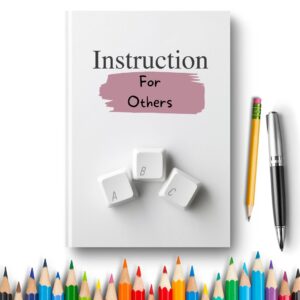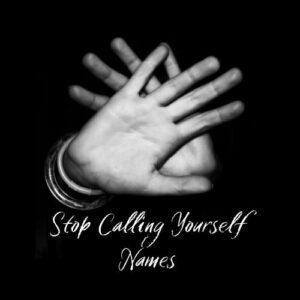Confidence is not something we find, it’s something we create.
I used to believe I’d be confident once I got my degree. I saw my supervisors and teachers and others’ in my field, and envisioned the satisfaction of being sure of myself like they were post-graduation. When that didn’t magically occur, I was convinced it must be the licensure exam itself that would bestow the so-far elusive feeling of confidence. Disappointingly, I was foiled again only to set my sights on having a real job as a real therapist, believing that was the thing that would give me the confidence I so desperately craved. So it was terrifying to realize early on that I was just as insecure as ever. I’d been hired to work with adolescent boys at a residential treatment program. I’d anticipated the trifecta of degree, licensure and official job status would be what somehow imbued me with confidence. Instead, I felt like an imposter. I pursued guidance, supervision and my own therapy to address the gap. Though I did learn ways to connect with the boys and left the job years later undoubtedly a more skilled and compassionate professional; one thing I didn’t get from the job was confidence.
For the next 20+ years, I continued to operate under the belief that confidence was just on the other side of that next training or book or teacher.
It never worked. It never would.
Because confidence isn’t something you get from what you do or learn. It doesn’t come from knowledge or degrees or money or talent.
What I now know if confidence is the result of 3 simple (but not easy) things. I call them the 3 Cs to Confidence.
1) Step 1: Commitment
This isn’t just commitment to something as long as it keeps you interested. This is commitment to a goal for the long haul. If you keep changing your commitment, you don’t have to go all the way through and won’t get to confidence. And it’s not just commitment to what you want to achieve, it also commitment to yourself while in pursuit. This means learning to have your back when things don’t go as planned and not kicking yourself to the curb when you realize you need to backtrack or go back to the drawing board.
This is one of the hardest steps because it’s a bumpy ride on what one of my teachers calls, “the struggle bus.” You will feel self-doubt and fear. Stepping into unfamiliar territory always bring this up. The journey is not linear and sometimes it’s a switchback where you can’t tell if you’re moving forwards or backwards.
Not only that; it usually takes longer than you thought and it’s more boring and tedious than you expected. Commitment is hard work and it will require you to stretch out of your comfort zone.
Not feeling like doing something is not a reason not to do it.
Step 2: Courage
If you stay with commitment you will feel fear which will require courage in order to keep going to. You don’t need courage unless you’re in fear or discomfort, but courage is the currency of confidence. More than once, you’ll feeling like you’re stepping off a cliff without seeing how far you’ll fall or if or where you’ll land. Courage is what you’ll need in such moments. You cannot get to confidence without mobilizing courage.
Step 3: Capability
If you stay committed to keep taking action toward your goal and maintain a commitment to stay on your own team no matter what.
If you keep using courage to open the door when you fear comes knocking uninvited, you will build capability. It won’t happen as fast as you want or as easily as you’d like. But if you keep stay on track with Step 1 and 2, you will learn what you are capable of and through the process, you’ll built trust and pride in yourself. Capability requires self-reliance and resourcefulness. You’ll be asked to let go of relying on external validation and encouragement to keep going; instead, you’ll need to appreciate yourself on purpose, acknowledge your accomplishments both big and small and support yourself through setbacks.
Result = Confidence
I finally learned this lesson and it changed my life. The hardest step for me was courage. I wanted confidence without having to take risks or lean into fear. It doesn’t feel good to step into the unknown and let go of the reigns. I also didn’t want to take responsiblity for my own validation; I wanted to rely on others for support and validation. It’s a lot of work to maintain unconditional positive regard for oneself independent of outcomes. It’s still a practice and one I rarely do easily or well, but it’s worth it. At least I know where confidence can be found and what it takes to get it; and now you do too.



